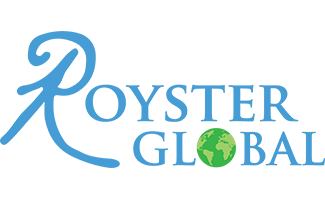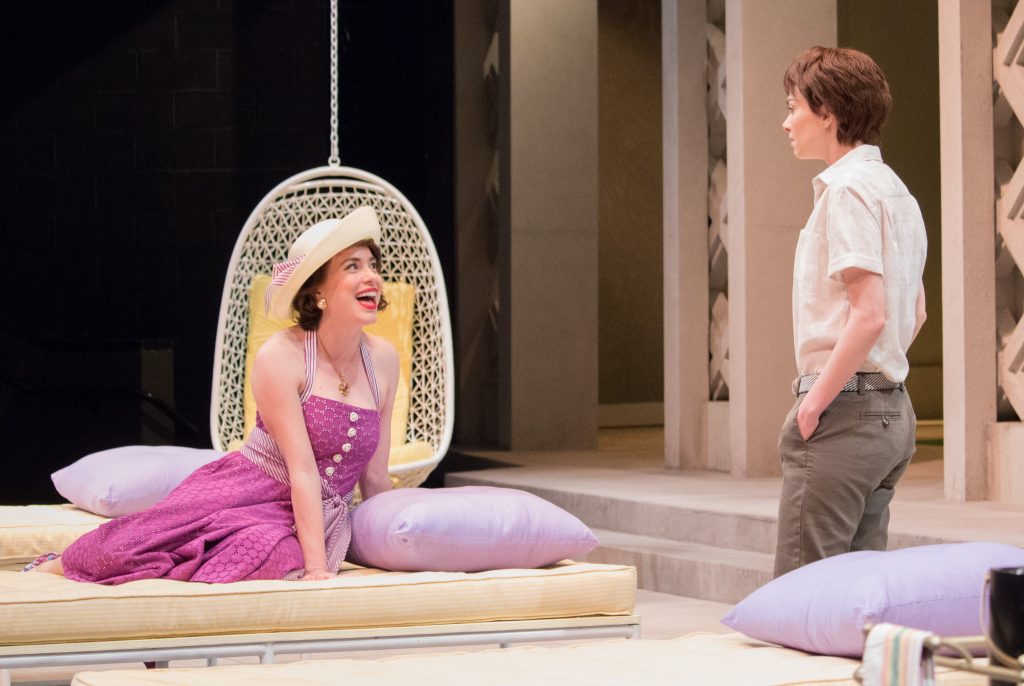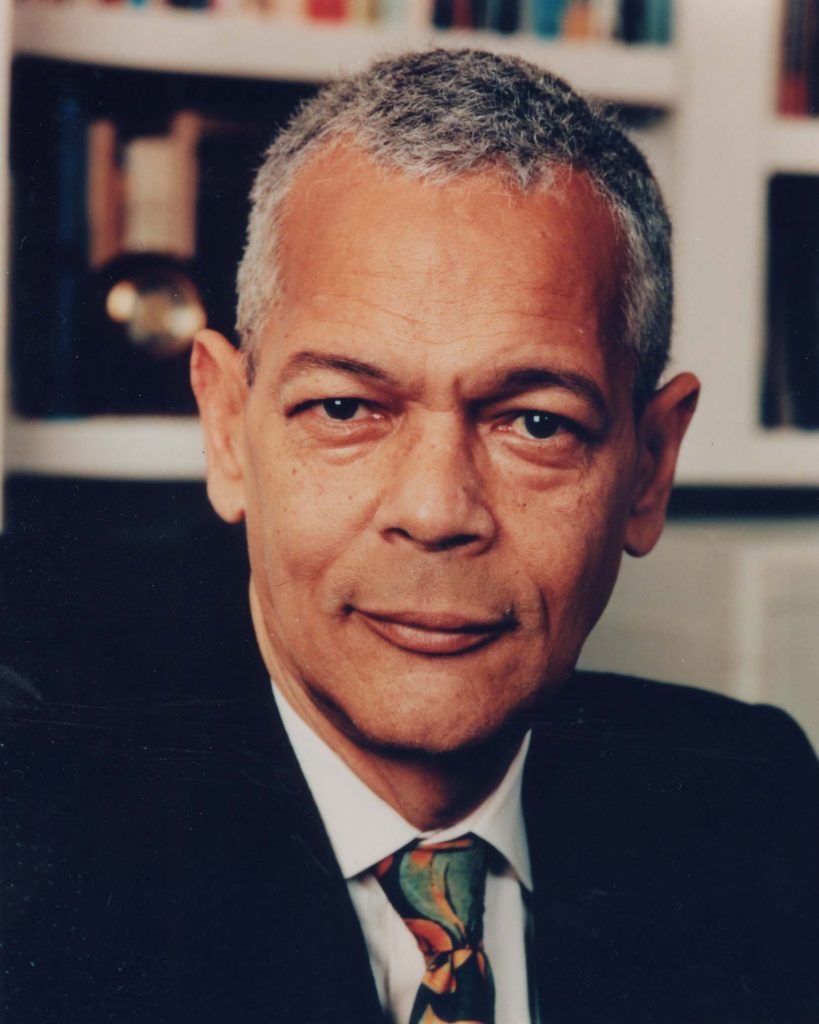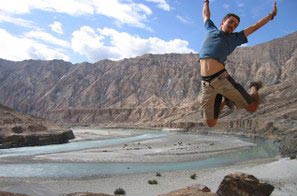The Mellon-funded Humanities for the Public Good initiative awarded 10 graduate students in the College of Arts & Sciences Professional Pathways Fellowships to focus on socially engaged summer public humanities projects. We asked three of the fellows to tell us about their summer projects in this back-to-school series.
Pallavi Gupta (geography) worked on a photo-narrative project with a group of women workers in Hyderabad, India, to visualize and build public understanding of the dangers of unsanitary conditions in Hyderabad train stations and to advocate for the health and well-being of sanitary waste workers.
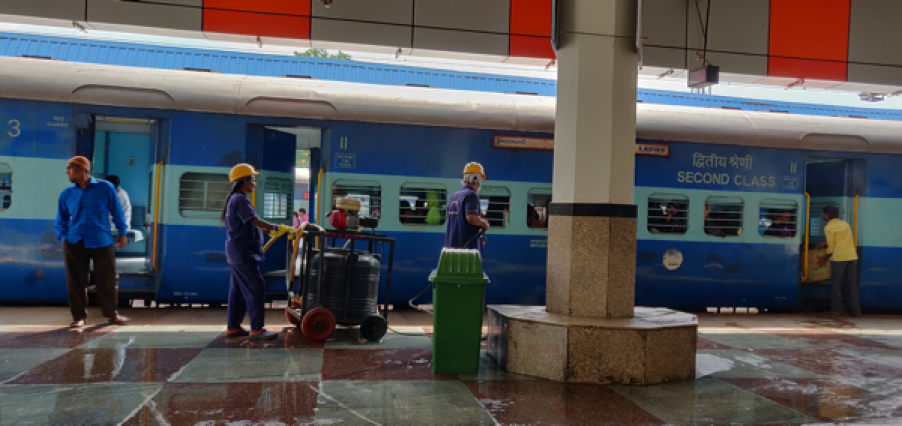
Q: What is your area of research focus?
A: My research examines the intersections of waste and space within urban infrastructure in India. Using indices of gender, caste, class and labor relations, I am examining the ways that caste and waste organize bodies and spaces. My focus is on the railway station. A railway station is a microcosm of society and through the lenses of waste, caste and space, we can help examine how social and economic relations are shaped.
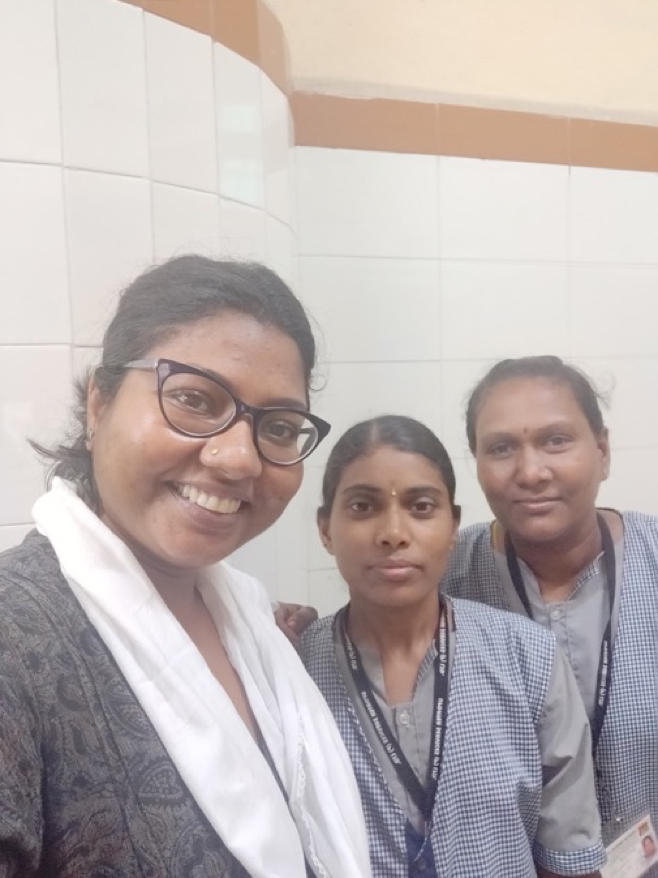
Q: Can you briefly describe the scope of your summer project?
A: My summer project was based in Hyderabad, India. The goal of the proposed project is to understand the experiences of cleaning staff and how caste and waste interact in the space of the railway station. As part of this, I interacted with different groups — cleaning staff within the railway station and railway shed, workers unions, railways employees, contractors and the labor commissioner.
Q: What did the fellowship allow you to do? How did financial support help the project?
A: The fellowship was critical in many ways. First, as an international student, with limited funding opportunities that can cover a range of expenses, this fellowship allowed me to travel to India and cover my living expenses for the duration of my research work. Second, the fellowship allowed me to connect and interact with the different participants. It was also an opportunity to meet fellow researchers and learn about their work. Third, it allowed me to interact with a range of stakeholders and laid the groundwork for my research.
Q: What are the public implications of this project? Are you producing a “product” that is based on the research?
A: The project allowed me to interact with members of different labor unions. It also informed me about the contractualization that exists within cleaning work in railway stations in India. Cleaning workers and cleaning work are mostly invisible. The engagement with cleaning workers allowed me to understand and bring to the fore some of their concerns. I have produced a photo narrative of women at work, which captures the tools and technologies for cleaning, issues of safety and dignity at work and some aspects of contractual labor in India. Overall, I would say that this project is crucial in my work as a scholar and as an advocate trying to highlight the issues that marginalized groups face.
Q: What about public humanities work appeals to you?
A: Having worked on issues of gender and non-discrimination in India before pursuing my Ph.D., I always wanted my research to have elements that would connect to people. Public humanities allows me to do that. It has opened up pathways to understand not just public infrastructure like the railways, but also highlight some concerns around caste and the status of workers — including economic concerns such as delay of payment and their ability to participate in collective bargaining due to the presence or absence of workers unions in railway stations.
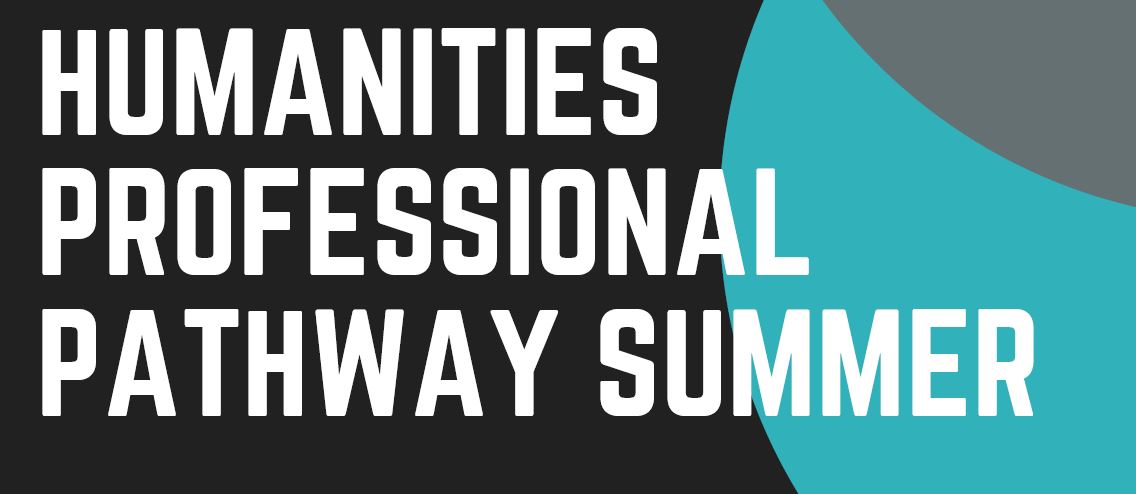
Q: What’s next? How will you further integrate this into your teaching, research and service?
A: The fieldwork has been instructive in many ways and has opened my eyes to persisting forms of marginalization. My discussions with cleaning staff in one of the “cleanest” railway stations in India underscored for me how even today, caste-and class-based discrimination have assumed newer and more insidious forms in the present day. This knowledge is very important as I proceed with my research, which examines how caste and gender mediate labor relations and the allocation of space within important public infrastructure in India.
I look forward to participating in “brown-bag” talks wherein I can share my findings and my dilemmas with scholars, students and faculty alike. In doing so, I aim to not only deepen my engagement with the UNC community but also to interact with other scholars who are engaged in this work.
Q: What advice would you give to other students seeking to do public humanities work?
A: For any student aspiring to do public humanities work, I would recommend that such students be clear what they are really working for and whose voices they wish to represent. I would only cite MK Gandhi: “Think of the poorest and the weakest man/woman whom you may have seen, and ask yourself if the step you contemplate is going to be of any use to him/her.”
Interview by Kim Spurr

